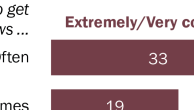On September 11th terrorism spurred television news people to do what they do best.
Producers suddenly were allowed to create news programs rather than gimmick-filled promotional vehicles. Reporters were asked to cover something important and take care to get it right. The anchor mugging and bon mots largely disappeared.
Can it last?
Local television news over the last generation had devolved into something less than journalism because the medium thought it lacked compelling stories to tell. Manipulating viewers overtook thinking about content. An obsession with extracting absurd profits overwhelmed what was originally a federally required public service in exchange for a license to broadcast.
Now, the federal requirements long gone, the audience has begun to shrink, and the profits are drying up.
An ABC affiliate in St. Louis recently dropped news altogether because it couldn’t make enough money. Others will likely follow. There is not enough audience or advertising to support so many news outlets.
The short history of television reveals that epic moments can define new eras for journalism. News institutions remake themselves and find new philosophies. Viewers sample new stations, switch channels and create new loyalties.
Since that unthinkable September morning, Americans have returned to the news. Viewership is up, and these people are hunting. One major station executive told us privately that by the first of October, close to 90 percent of the households in his market had sampled his news programs.
We have come back to news because there is an important story in the country that compels us to look beyond ourselves, our health, and our consumer impulses. If this project has established one thing, it’s that many of the conventional formulas broadcasters apply don’t work any more.
If local broadcasters respond by trying to exploit this new audience, rather than inform it, viewers will be repelled as they would by a war profiteer or a price gouger.
Now TV news professionals have an opportunity, and a reason, to show the public that they can practice journalism again.




